Why Odoo is considered best for streamlining your business?
Last updated: November 11, 2022 Read in fullscreen view
- 09 Apr 2025
 Odoo Migration Best Practices: A Complete Guide to Upgrading Your ERP System 38/112
Odoo Migration Best Practices: A Complete Guide to Upgrading Your ERP System 38/112 - 03 Dec 2025
 Templafy Features Explained: The Ultimate Guide to Streamlined Content Management 33/59
Templafy Features Explained: The Ultimate Guide to Streamlined Content Management 33/59 - 14 Dec 2021
 Odoo - the Right Software for Your Digital Transformation? 33/469
Odoo - the Right Software for Your Digital Transformation? 33/469 - 21 Apr 2021
 Most frequently asked questions about Odoo ERP 31/1235
Most frequently asked questions about Odoo ERP 31/1235 - 01 Jan 2023
 Senior Odoo Business Developer - Job Detail 30/552
Senior Odoo Business Developer - Job Detail 30/552 - 29 Nov 2021
 Memorandum of Understanding (MOU) for Partnership Agreements 28/544
Memorandum of Understanding (MOU) for Partnership Agreements 28/544 - 20 Oct 2022
 Odoo roadmap for beginners and small businesses 27/1085
Odoo roadmap for beginners and small businesses 27/1085 - 10 Aug 2021
 Build A Marketplace Website with Odoo ecommerce 27/775
Build A Marketplace Website with Odoo ecommerce 27/775 - 18 May 2022
 Odoo Employee Contract Portal Self Service 19/659
Odoo Employee Contract Portal Self Service 19/659 - 21 Jan 2026
 Best Manufacturing ERP Software in India 18/26
Best Manufacturing ERP Software in India 18/26 - 03 Dec 2024
 CRM Solutions on the Odoo Platform 17/61
CRM Solutions on the Odoo Platform 17/61 - 08 Aug 2022
 Scale-up! The ultimate business game to learn business operations before you get started 17/614
Scale-up! The ultimate business game to learn business operations before you get started 17/614 - 19 Oct 2021
 The Workplace of the Future: Gamification to Encourage and Reward Employees 17/321
The Workplace of the Future: Gamification to Encourage and Reward Employees 17/321 - 28 Oct 2025
 The Future of Real Estate: Key Trends and Essential Lessons in Digital Transformation 16/60
The Future of Real Estate: Key Trends and Essential Lessons in Digital Transformation 16/60 - 13 Jan 2025
 Why Businesses Are Choosing Microsoft Dynamics 365 Business Central Over NetSuite 14/132
Why Businesses Are Choosing Microsoft Dynamics 365 Business Central Over NetSuite 14/132 - 20 Dec 2021
 What is Hybrid Mobile App Development? 14/378
What is Hybrid Mobile App Development? 14/378 - 11 Sep 2022
 Odoo - a product-market fit for a radical and meaningful transformation of SMEs in Japan 14/299
Odoo - a product-market fit for a radical and meaningful transformation of SMEs in Japan 14/299 - 17 Feb 2022
 10 services of Odoo Development for streamlining your business 13/422
10 services of Odoo Development for streamlining your business 13/422 - 07 Nov 2022
 Why Design Thinking can save the outsourcing industry 12/194
Why Design Thinking can save the outsourcing industry 12/194 - 09 Apr 2022
 Comparing Features for Odoo ERP with ERPNext 12/281
Comparing Features for Odoo ERP with ERPNext 12/281 - 15 Jun 2022
 ERP Implementation Strategies: Big Bang and Phased rollout 12/501
ERP Implementation Strategies: Big Bang and Phased rollout 12/501 - 19 Jan 2022
 TIGODOO - The leading player in the digital transformation market 12/365
TIGODOO - The leading player in the digital transformation market 12/365 - 10 Feb 2022
 Odoo Implementation Services - Let Us Be the Icing 11/370
Odoo Implementation Services - Let Us Be the Icing 11/370 - 23 May 2022
 4 Strategies of Odoo ERP Implementation 11/294
4 Strategies of Odoo ERP Implementation 11/294 - 08 Nov 2022
 Considerations in revolutionizing your business with Odoo 11/267
Considerations in revolutionizing your business with Odoo 11/267 - 03 Nov 2021
 7 phases of Odoo Implementation and Development: Can they be outsourced? 11/406
7 phases of Odoo Implementation and Development: Can they be outsourced? 11/406 - 12 Oct 2022
 Why is ODOO end-to-end business management software? 10/344
Why is ODOO end-to-end business management software? 10/344 - 10 Apr 2022
 Odoo Dealership Management 10/580
Odoo Dealership Management 10/580 - 10 Feb 2022
 Odoo Implementation - Basics of the QuickStart Methodology 10/455
Odoo Implementation - Basics of the QuickStart Methodology 10/455 - 03 Apr 2023
 Odoo ERP - "Swiss army knife" approach for all business solutions 10/222
Odoo ERP - "Swiss army knife" approach for all business solutions 10/222 - 01 Jan 2024
 Odoo: The Small Business Game-Changer — Cost Savings and Enhanced Productivity 9/130
Odoo: The Small Business Game-Changer — Cost Savings and Enhanced Productivity 9/130 - 19 Apr 2023
 A Deep Dive into Odoo: Benefits, Drawbacks, Strategic Fit, and Investment Models 9/233
A Deep Dive into Odoo: Benefits, Drawbacks, Strategic Fit, and Investment Models 9/233 - 25 Jul 2022
 Govern your Business with Odoo - One Solution To Many Challenges 9/267
Govern your Business with Odoo - One Solution To Many Challenges 9/267 - 19 Jul 2022
 Odoo vs Sage Comparison 9/295
Odoo vs Sage Comparison 9/295 - 02 Jan 2022
 ERP Implementation Cost and Duration—A Tale of Two Companies (Part 2) 9/269
ERP Implementation Cost and Duration—A Tale of Two Companies (Part 2) 9/269 - 08 Aug 2021
 XERO vs ODOO: Which fits your needs? 9/319
XERO vs ODOO: Which fits your needs? 9/319 - 09 Nov 2021
 Frequently Asked Questions about Odoo 9/435
Frequently Asked Questions about Odoo 9/435 - 29 Nov 2019
 Odoo Website Builder Allows You to Make Your Own Website 8/712
Odoo Website Builder Allows You to Make Your Own Website 8/712 - 23 Aug 2022
 How to Create Qweb Report in Odoo 16? 8/871
How to Create Qweb Report in Odoo 16? 8/871 - 06 Dec 2024
 Steps For Integrating Sustainable Practices Into Business Operations 8/142
Steps For Integrating Sustainable Practices Into Business Operations 8/142 - 01 Feb 2024
 Employee Attendance Using Camer AI 8/191
Employee Attendance Using Camer AI 8/191 - 01 Nov 2023
 Unlocking the power of Odoo 17 - What are the new and improved features? 8/343
Unlocking the power of Odoo 17 - What are the new and improved features? 8/343 - 15 Jul 2025
 Steps to Successful Odoo Implementation 7/128
Steps to Successful Odoo Implementation 7/128 - 18 Mar 2025
 Odoo HRMS Software for Efficient HR Management in Dubai Businesses 7/122
Odoo HRMS Software for Efficient HR Management in Dubai Businesses 7/122 - 01 Jan 2022
 Planning for Successful ERP Implementation Projects (Part 1) 7/216
Planning for Successful ERP Implementation Projects (Part 1) 7/216 - 01 Oct 2022
 Odoo 16 will Disrupt The ERP Mid-Market with stunning features 7/369
Odoo 16 will Disrupt The ERP Mid-Market with stunning features 7/369 - 07 Feb 2023
 Odoo Consulting Services in Vietnam 6/256
Odoo Consulting Services in Vietnam 6/256 - 03 Jan 2022
 ERP System Scalability—A Tale of Two Companies (Part 3) 6/295
ERP System Scalability—A Tale of Two Companies (Part 3) 6/295 - 19 Sep 2022
 Comparison between Odoo and SAP: It doesn't matter whether a cat is black or white, as long as it catches mice 6/216
Comparison between Odoo and SAP: It doesn't matter whether a cat is black or white, as long as it catches mice 6/216 - 16 Mar 2022
 Digital Transformation With Odoo: an ERP made for you as SME and grow with you? 6/169
Digital Transformation With Odoo: an ERP made for you as SME and grow with you? 6/169 - 25 Dec 2021
 Compare Odoo Studio vs QuickBase vs OutSystems 6/507
Compare Odoo Studio vs QuickBase vs OutSystems 6/507 - 01 Apr 2025
 How to Manage Social Media Marketing with Odoo 6/134
How to Manage Social Media Marketing with Odoo 6/134 - 04 Apr 2023
 Odoo: A Re-Birth for Enterprise Software 5/150
Odoo: A Re-Birth for Enterprise Software 5/150 - 01 Mar 2024
 Odoo Ecosystem - ALL-IN-ONE BUSINESS MANAGEMENT SOFTWARE 5/204
Odoo Ecosystem - ALL-IN-ONE BUSINESS MANAGEMENT SOFTWARE 5/204 - 02 Oct 2022
 Odoo: The Disruptor of Traditional ERP in the Age of AI and Blockchain 4/276
Odoo: The Disruptor of Traditional ERP in the Age of AI and Blockchain 4/276 - 07 Nov 2022
 The Future of Odoo Consulting 4/251
The Future of Odoo Consulting 4/251 - 18 Mar 2020
 Automate Recruitment with Odoo: Work smarter, not harder 3/334
Automate Recruitment with Odoo: Work smarter, not harder 3/334 - 04 Jan 2022
 Freedom of ERP Deployment Choice—A Tale of Two Companies (Part 4) 3/221
Freedom of ERP Deployment Choice—A Tale of Two Companies (Part 4) 3/221 - 02 Oct 2025
 Why Digital Transformation Fails: ERP Lessons, Outsourcing Strategies, and Adaptive Development Insights 3/39
Why Digital Transformation Fails: ERP Lessons, Outsourcing Strategies, and Adaptive Development Insights 3/39 - 08 Aug 2022
 Why is Odoo growing faster than other ERP software systems? 2/206
Why is Odoo growing faster than other ERP software systems? 2/206
Today, companies should no longer limit themselves to business strategies that worked manually at the time. In the future of business, technology advances by leaps and bounds. Every moment in the world, many companies grow, which to support their solidity require adequate software to direct business cycles and grow constantly. This is where Odoo ERP & Odoo CRM plays a crucial role in organizational management as it is more relevant today in its fast return on investment.
So in this blog, we will discuss in detail the reasons why Odoo ERP is one of the best and most efficient software on the market, this business solution reduces the need to manually manage data related to operations, sales, website, finance, marketing, human resources management, among other applications.
Odoo – one-stop solution for all areas of a business
Odoo has more than 26,000 applications in its app store and covers all business needs from one place without having to search for information on different sites and losing traceability. Odoo applications integrate seamlessly with each other allowing you to automate your processes and drastically reduce IT spending.
In addition, the new website builder with new and improved designs enables you to have a beautiful website or e-commerce that is perfectly integrated with other systems such as logistics, lead management, or automated marketing actions.
There are three different versions of Odoo ERP: Odoo Enterprise, Odoo Community, and Odoo Online Saas, and you can choose one of them according to the size, nature, and work processes of your company.
Can SMEs use Odoo ERP or Odoo CRM?
Since MNCs are already applying Odoo to manage their internal processes, many ask, “can I use it in my small or medium business?” Well – The answer is clear! As we’ve already told you, Odoo has the ability to adapt to any type of company, just program and customize it.
Odoo is currently the most requested business management software that helps develop comprehensive ERP applications with essential functions: Accounting, Finance, Project Management, Sales and Purchasing, CRM, Warehouse Management, Human Resources, Marketing, Point of Sale, Electronic Commerce, and many more.
Integrating multiple features into a single application package has never been as easy and hassle-free as it is with Odoo. Its modular approach redefines scalability and allows companies to start with a standard application and eventually add modules as the business evolves.
Benefits of Odoo and why you should choose for your business
Odoo has a lot of advantages over its competition, starting with the fact that it includes a dedicated community and a powerful customization capacity, this allows it to adapt to any business need. Below are some of the main advantages that Odoo has over its competition:
Flexibility
Odoo is an extremely flexible system. Unlike other ERP software, Odoo can be customized to fit the specific needs of any business – regardless of size or industry. And because Odoo is open source, businesses have full access to the source code and can make changes as they see fit. This level of customization is simply not possible with other ERP solutions on the market.
Scalable solution
Another advantage of Odoo is its scalability. Odoo can be scaled up or down to meet the changing needs of a business as it grows. This makes it an ideal solution for businesses that are looking to expand in the future. With other ERP solutions, businesses often have to purchase additional licenses or modules as they grow, which can be costly and time-consuming. By choosing Odoo, businesses can cut down on these costs and ensure that their operations are always aligned with their current needs.
This phased approach is the polar opposite of many other ERP systems that require an entire suite or package of expensive and complex systems. Odoo, on the other hand, can accommodate businesses of all sizes and industries because it can be tailored to fit their unique needs.
Cost
Odoo is also much more cost-effective than other ERP solutions. Because it is open-source, businesses only have to pay for the modules they need – and they can even develop custom modules if they so choose. This makes Odoo a great option for businesses on a tight budget.
Transparency
Odoo is very transparent throughout the purchasing process with very few hidden costs. This makes it easy for businesses to budget for their Odoo implementation and ensures that there are no surprises down the road.
Ease of Use
Odoo is designed to be easy to use, even for businesses with little or no experience with ERP systems, so workflow and activities are smooth in the system. The user interface is intuitive and easy to navigate, and Odoo's online documentation is clear and concise. This makes it easy for businesses to train their employees on how to use Odoo, and helps reduce resistance to change.
Odoo ERP has a friendly and intuitive interface, which is also capable of being personalized if the user requires it. Odoo has an interface compatible with mobile devices and tablets, to support the demands of internal and external users.
Items will not be duplicated
Thanks to its personalized processes, the software guarantees that the data entered in it for internal procedures will not be duplicated, that is, records of customers, suppliers, products, among others.
Affordable for any organization
Odoo has a relatively low cost of implementation and also low recurring costs. One of the reasons is because of the licenses. The Community version of Odoo has no license cost. Odoo is a system in which our clients can wisely invest, with the guarantee that they will have software that adapts from the beginning to their requirements and will continue to do so over time.
Most Popular Odoo ERP Modules
Odoo’s fundamental principle is to empower the customer journey. One of the characteristics that differentiate Odoo from other ERP software is its modular architecture. There are several core modules and apps, which allow the customer to select only the applications most relevant to their business.
Below, we will see the Odoo modules and what they are for! Remember that each app fully integrates with all other Odoo apps, allowing you to manage all your data in one system.
Odoo Accounting
The accounting module connects directly to the bank or PayPal account, and the transactions are synchronized every hour. This module simplifies the creation and sending of invoices, facilitates the understanding of the financial situation, and enables you to manage employees’ expenses and more.
Odoo Inventory & MRP
Odoo’s manufacturing management apps support manufacturing processes and the supply chain. It automates the purchases by defining rules on made-to-order products, minimum stock, or main production plan.
The inventory management module allows controlling processing time by automating inventory transactions and improving transparency in all business operations. It organizes the warehouse efficiently, managing shipment details, purchases order proposals based on inventory forecasts, tracks product expiration, and creates custom barcodes.
Odoo Website
The Odoo Websites app allows efficiently building and managing the online store while creating the best shopping experience for the customer. This module enables to manage and set payment terms, define product promotions, and much more. It also allows you to implement a live chat to answer customer questions in real-time.
Odoo Email Marketing
A positive customer journey is essential, and Odoo Email Marketing knows precisely how to allow you to achieve it. The Marketing module enables you to create automated and targeted marketing campaigns, segmenting prospects appropriately.
Email Marketing is also part of Odoo: thanks to this powerful tool, it is possible to structure visually appealing email campaigns in a few minutes. Not just email: also SMS campaigns and management of corporate social media.
Odoo Sales
Odoo is also a kind of CRM platform: it schedules activities such as calls, meetings, mailings, and quotes and allows you to stay connected with customers. The sales module simplifies negotiations with an electronic signature, which allows customers to easily review and sign quotes online. Odoo Sales makes communications efficient by being able to receive personalized alerts on certain activities and automatically keep complete records of trades.
In addition, the software facilitates upselling, automatically proposing extra options and accessories, applying close triggers and discounts.
Conclusion
If you are planning to take a leap in the implementation of Odoo ERP and project demanding customizations for your company, at TIGO we are ready to support you with the best. Our developers will interpret your requirements and business needs to adapt them to the solution. We guarantee 100% in the adaptability curve of your collaborators towards the new system, so that your business is more efficient and productive. For any questions, do not hesitate to write us at info@tigosolutions.com.







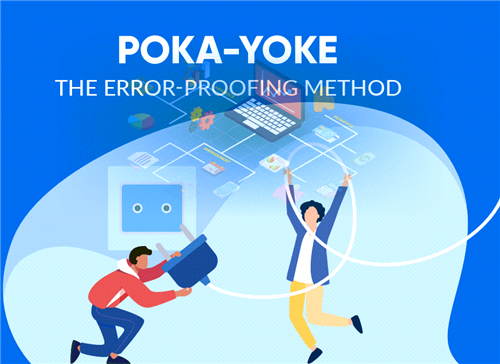


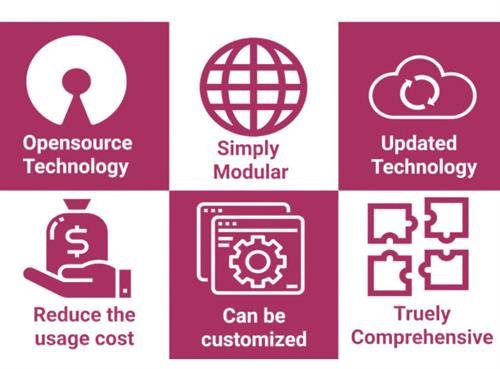


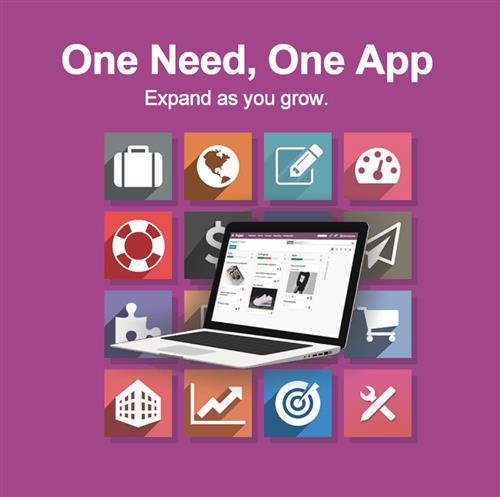

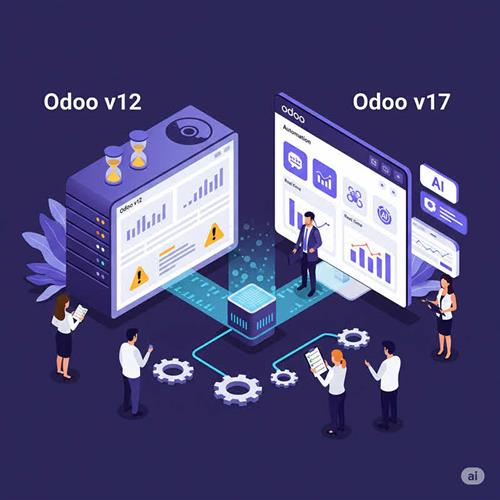







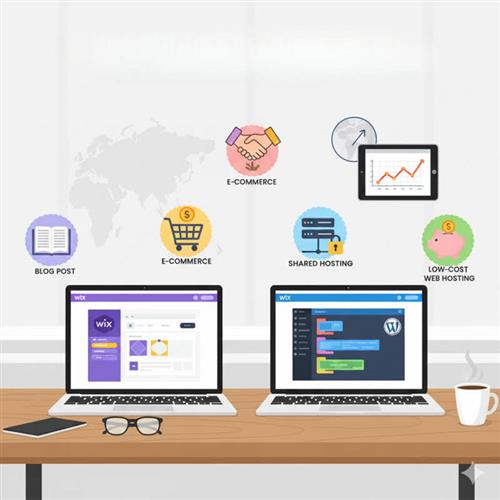

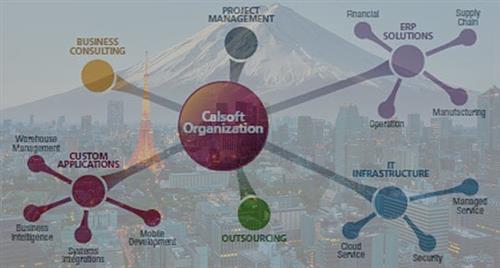









 Link copied!
Link copied!
 Recently Updated News
Recently Updated News